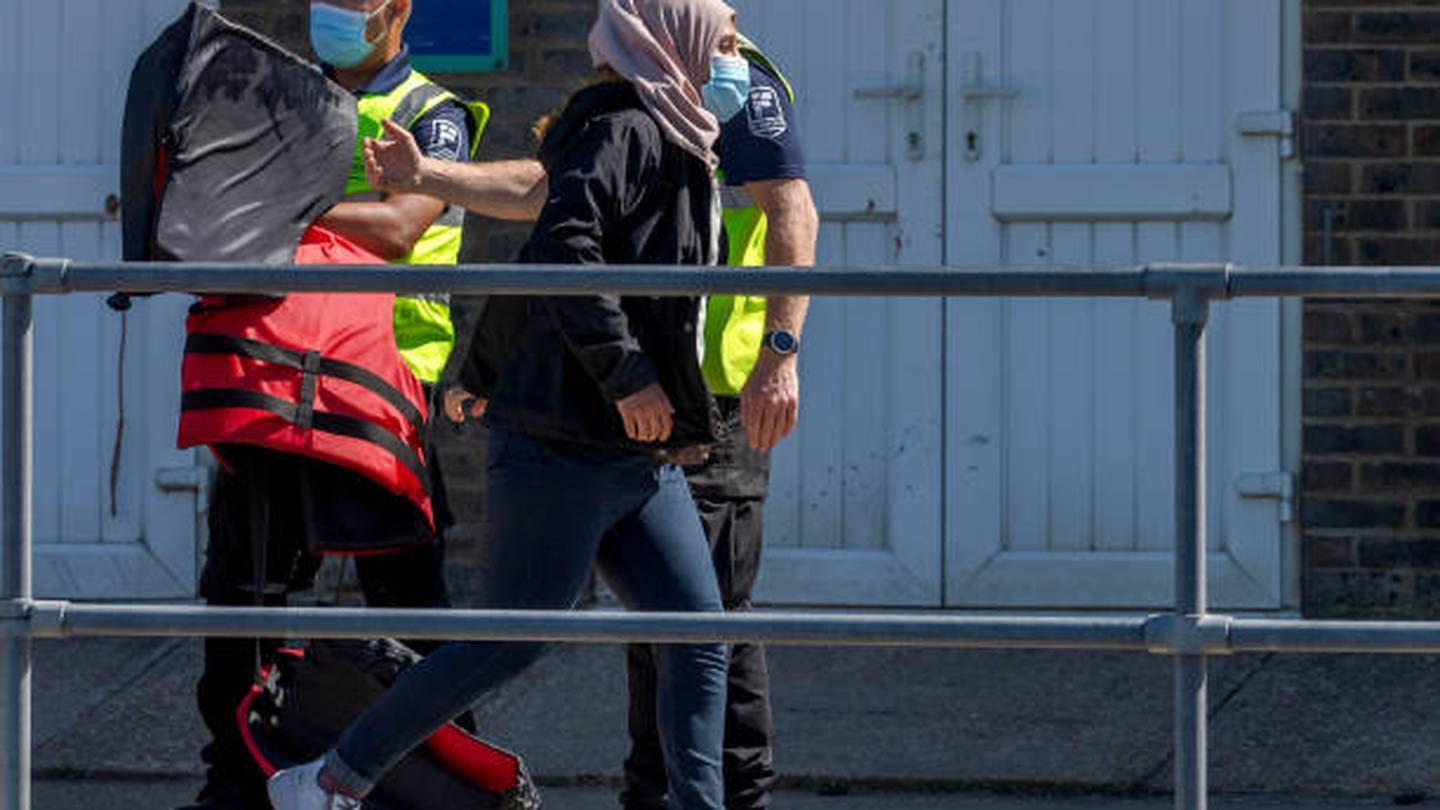A migrant was appealing deportation for a series of sex crimes when he pushed a man in front of a train at Oxford Circus Tube station, according to reports.
Brwa Shorsh, 24, admitted to shoving Tadeusz Potoczek, 61, onto the tracks, claiming he did it for "revenge" because the postman gave him a "dirty look" in February.
His appeal against deportation was still ongoing when he pushed Mr Potoczek in front of the southbound Victoria Line train.
Fortunately, another passenger acted swiftly, pulling Mr Potoczek back onto the platform just in time. The postman escaped without serious injuries.
Robert Walker, the experienced train driver, spotted Mr Potoczek, who was wearing a bright red jacket, and immediately activated the emergency brake.
Shorsh fled the scene but was apprehended just hours later at around 10:30 pm at Warren Street station. An officer recognised him from CCTV footage collected earlier.
Although the Kurdish migrant denied attempted murder, a jury at Inner London Crown Court convicted him after only 32 minutes of deliberation on July 31. His sentencing is scheduled for September 26.
Deportation Delays and Public Safety
The case of Brwa Shorsh highlights a growing concern about the effectiveness of the UK's deportation process. Despite a long history of criminal convictions, Shorsh was able to delay his deportation through an appeal process, leaving him free to commit further offenses.
This incident raises questions about the balance between protecting public safety and providing fair legal processes for immigrants. While the UK government has a legal duty to deport foreign criminals, the system appears to be struggling to keep pace with the volume of cases. In 2023, just under 4,000 foreign offenders were removed from the UK, which is the highest number in four years but still lower than pre-pandemic levels.
A Shocking Attack
The attack on Tadeusz Potoczek at Oxford Circus station was a shocking reminder of the potential dangers posed by individuals who are able to evade deportation despite having a criminal record. Mr. Potoczek, a postman, was walking along the platform when Shorsh, who had been sleeping rough, pushed him onto the tracks. The train driver was able to stop the train just in time, preventing a fatal accident.
The Impact on the Victims
The incident has had a significant impact on the victims. Mr. Potoczek said he feared for his life, and the train driver expressed deep distress over the incident. A commuter who pulled Mr. Potoczek to safety said he was shocked by the attack and feared that Shorsh would try to harm Mr. Potoczek again.
Public Response
The case has sparked outrage among members of the public. Some have criticized the UK's immigration system, arguing that it is too lenient on foreign criminals. Others have expressed concern about the lack of support for homeless people in the UK, suggesting that this may have contributed to Shorsh's actions.
The Future of Shorsh's Case
Shorsh will be sentenced on September 26. If the Immigration Tribunal determines that he can be deported by the Home Office for his previous offenses, he could be sent to Kurdistan—which is understood to be his country of origin—if the region is deemed safe enough. The FCO currently advises against all but essential travel to the area.
The Home Office has stated that it will not comment on individual cases and that it would be inappropriate to comment on ongoing legal proceedings. However, the case is likely to generate further debate about the UK's immigration policies and the challenges of balancing public safety with the rights of immigrants.
A Call for Reform
The case of Brwa Shorsh is a stark reminder of the need for reform in the UK's deportation system. The system must be more effective in removing foreign criminals from the country, and the process should be expedited to prevent individuals from delaying deportation and committing further offenses.
The government must also address the underlying causes of crime, such as homelessness and poverty, to prevent similar incidents from occurring in the future. The well-being and safety of all citizens should be paramount, and the UK's immigration system must be reformed to ensure that it is able to protect the public.


















